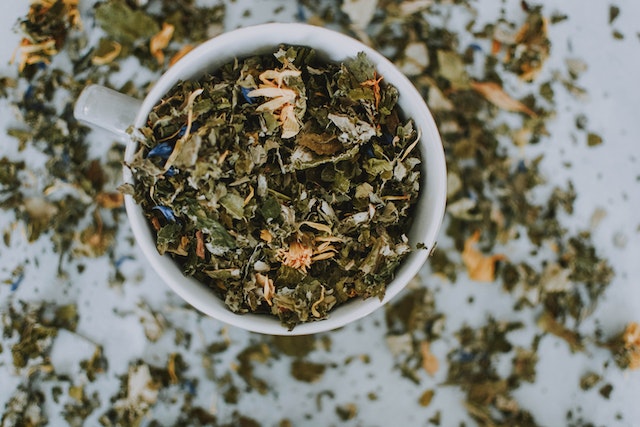
The use of plants and herbs for their healing properties dates back thousands of years, to ancient civilizations such as those in China, India, and Egypt. Herbal medicine, also known as botanical medicine or phytomedicine, is still widely used today in many parts of the world as a natural and holistic approach to treating various health conditions.
While many herbs are safe to use, it is important to note that they can also have potential side effects and interactions with other medications. It is always best to consult with a trained herbalist or healthcare provider before using any herbal remedies.
In addition to herbal medicine, other holistic approaches to health and wellness include acupuncture, massage therapy, and meditation. These modalities can help to reduce stress, improve immune function and circulation, and enhance overall well-being.
Healing Properties of Herbal Medicine
Herbal medicine has been an integral part of human culture for centuries, harnessing the healing properties of plants and herbs to promote well-being. In this section, we will embark on a journey deep into the world of herbal medicine, exploring the diverse and fascinating healing properties that nature has to offer. Delve into the understanding of medicinal plants and their compounds, discover the traditional and modern uses of herbs, and unlock the secrets of their extraordinary healing powers.
Understanding Medicinal Plants and Their Compounds
Plants are a treasure trove of beneficial compounds that can have a profound impact on our health. From the humble leaf to the intricate root systems, each part of a plant possesses its unique therapeutic properties. By understanding the various compounds that plants contain, we can tap into their full potential for healing.
Alkaloids:
These nitrogenous compounds are found in various medicinal plants and can have potent effects on the body. Alkaloids such as morphine, found in the opium poppy, have been used for centuries as pain relievers. Meanwhile, caffeine, found in coffee and tea, acts as a stimulant on the nervous system. The diverse array of alkaloids found in plants provides a range of medicinal applications, from analgesics to anti-inflammatory agents.
Flavonoids:
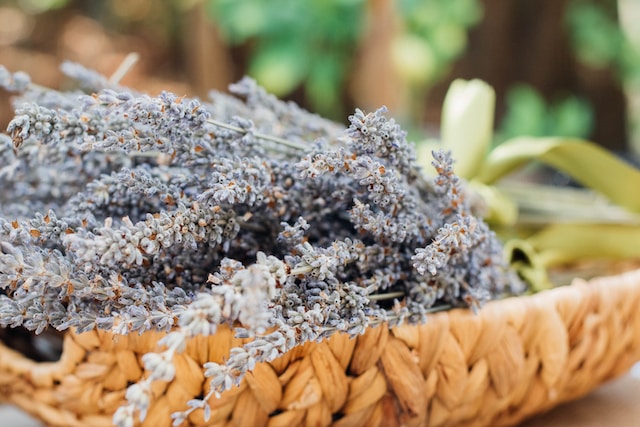
Flavonoids are antioxidant compounds that offer powerful protective benefits to the body. With their vibrant pigments, flavonoids are found in colorful fruits, vegetables, and herbs. These compounds help ward off oxidative stress, reduce inflammation, and support cardiovascular health. Examples of flavonoid-rich herbs include ginkgo biloba, a memory-enhancing herb, and chamomile, a calming and anti-inflammatory herb.
Terpenes:
Terpenes are aromatic compounds responsible for the distinctive scents and flavors of many plants. These compounds, found in essential oils extracted from herbs, possess diverse healing properties. For example, the terpene called linalool is abundant in lavender and has soothing and calming effects. On the other hand, limonene, found in citrus fruits like lemon and orange, is known for its mood-lifting qualities. Terpenes offer a delightful journey through nature’s aromatic garden of healing.
Traditional and Modern Uses of Herbs:
Throughout history, cultures worldwide have relied on herbs for their medicinal properties. From Indigenous healing practices to traditional Chinese medicine, the knowledge surrounding herbs has been passed down through generations. As we embrace modernity, the use of herbs has not waned but rather evolved, as we continue to uncover their potential in enhancing our well-being.
Traditional Uses:
Traditional medicine systems, such as Ayurveda and Traditional Chinese Medicine, have long recognized the healing properties of plants. From ginseng to turmeric, these time-honored practices incorporate herbs into comprehensive systems of health and wellness. Each herb is chosen for its specific qualities and is often combined with other herbs to create synergistic effects. These traditional approaches showcase the wisdom and deep connection our ancestors had with nature’s medicine.
Modern Herbal Medicine:
In modern times, herbal medicine has taken on a new dimension, blending traditional knowledge with scientific research. With advancements in technology and increased understanding of plant compounds, researchers have delved into the therapeutic potential of herbs. This has resulted in standardized herbal extracts, herbal supplements, and herbal-based pharmaceutical medicines. Modern herbal medicine aims to bridge the gap between ancient wisdom and modern science, offering evidence-based remedies for an array of health conditions.
Types of Herbal Preparations:
Herbal medicine comes in various forms and preparations, each tailored to suit different needs and preferences. These preparations allow for the extraction and concentration of the beneficial compounds found in herbs, ensuring maximum potency and effectiveness.
Herbal Teas:
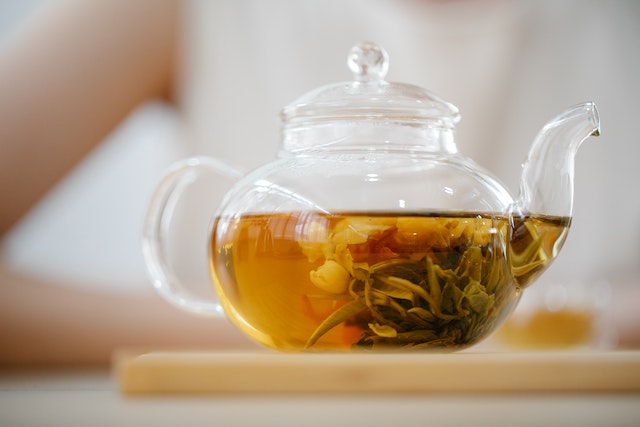
Herbal teas are one of the most common and popular forms of herbal preparations. They involve steeping dried herbs or flowers in hot water to extract the medicinal properties. This gentle extraction process allows the herbs to release their beneficial compounds slowly, making it suitable for daily consumption. Herbal teas can be enjoyed as a warm, soothing beverage or chilled for a refreshing, summer treat.
Tinctures:
Tinctures are concentrated liquid extracts made by soaking herbs in a mixture of alcohol and water. This powerful extraction method ensures that a high concentration of the herbs’ active constituents is preserved. They are typically taken sublingually (under the tongue) or diluted in water. Tinctures offer a convenient and potent way to consume herbs, as they can be easily measured and adjusted for dosage.
Herbal Oils:
Herbal oils are created by infusing herbs in carrier oils, such as olive oil or coconut oil. The oil absorbs the beneficial compounds from the herbs, creating a therapeutic blend that can be used topically or internally. Topical application of herbal oils can provide relief for various skin conditions, such as eczema or dryness, while internal use can support overall wellness.
Capsules and Tablets:
For those who prefer a more convenient and standardized approach, herbal capsules and tablets are readily available. These preparations contain powdered or extract forms of herbs, allowing for precise dosing and easy consumption. Capsules and tablets are often used for herbs that have a strong taste or odor, making them a popular choice for individuals who may find the taste of certain herbs unpleasant.
Herbal Poultices and Compresses:
Herbal poultices and compresses involve applying a mixture of herbs directly to the skin to provide localized relief. These preparations can be made by crushing fresh or dried herbs and combining them with hot water or oils. The mixture is then applied to the affected area, promoting healing and reducing inflammation. Poultices and compresses are particularly effective for treating muscle aches, joint pain, and skin conditions.
Commonly Used Medicinal Herbs
The world of herbal medicine is vast and diverse, offering a wide range of plants and herbs that provide healing properties. Here are some of the most commonly used medicinal herbs, categorizing them into distinct subheadings to help you navigate and discover their benefits.
Immune-boosting Herbs
Echinacea:
- Stimulates immune system activity, helping to prevent and fight off infections.
- Reduces the severity and duration of cold and flu symptoms.
Garlic:
- Exhibits antimicrobial properties, supporting immune function against bacteria, viruses, and fungi.
- May assist in reducing cholesterol levels.
Astragalus:
- Enhances the immune system’s resilience, offering protection against respiratory infections.
- Supports longevity and overall vitality.
Calming and Relaxing Herbs
Chamomile:
- Promotes relaxation and eases tension.
- Aids in digestion and soothes stomach discomfort.
- Promotes restful sleep and relieves insomnia.
Lavender:
- Induces a sense of calm and tranquility.
- Soothes anxiety and helps alleviate stress-related symptoms.
- Promotes better sleep and relaxation.
Valerian:
- Acts as a natural sedative.
- Assists with insomnia and promotes restful sleep.
- Alleviates symptoms of anxiety and tension.

Digestive Support Herbs
Ginger:
- Aids in digestion and reduces bloating.
- Relieves nausea, including morning sickness and motion sickness.
- Possesses anti-inflammatory properties.
Peppermint:
- Soothes digestive discomfort, including indigestion and gas.
- Helps relieve tension headaches and migraines.
- Promotes healthy bowel movement and eases symptoms of irritable bowel syndrome (IBS).
Licorice Root:
- Supports overall digestive health.
- Helps alleviate heartburn and acid reflux.
- Possesses anti-inflammatory properties and aids in healing stomach ulcers.
Herbal Medicine and Holistic Wellness
Herbal medicine has long been recognized as an integral part of holistic wellness practices. By incorporating herbs into our daily lives, we can tap into the incredible healing potential of nature and achieve balance and harmony in mind, body, and spirit. In this section, we will explore how herbal medicine can be harnessed as a powerful tool for holistic wellness. From promoting mental well-being to supporting physical health, herbs have the ability to nourish and restore our entire being.
- Herbs for Calming the Mind:
In today’s fast-paced world, finding moments of peace and tranquility has become increasingly important. Fortunately, nature provides us with a plethora of herbs that have calming properties, helping to soothe an overactive mind and promote relaxation.
Chamomile: Known for its gentle and comforting effects, chamomile is a popular herb for reducing anxiety and promoting sleep. Enjoy a warm cup of chamomile tea before bed to unwind and prepare for a restful night’s sleep.
Lavender: The aromatic scent of lavender has long been associated with relaxation and stress relief. Whether in the form of essential oil for aromatherapy or a soothing bath infused with dried lavender flowers, incorporating this herb into your routine can create a calming sanctuary.
- Herbs for Energizing the Body:
When our energy levels are low, it can be challenging to fully engage in life’s activities. Thankfully, nature provides us with herbs that can invigorate the body and awaken our vitality.
Ginseng: Widely renowned for its energy-boosting properties, ginseng has been used for centuries to combat fatigue and improve physical endurance. Whether consumed as a tea or taken as a supplement, ginseng can help you power through your day with increased vitality.
Peppermint: Known for its refreshing aroma, peppermint is not only a digestive aid but also a natural energizer. Sip on a cup of peppermint tea or inhale the invigorating scent of peppermint essential oil to awaken your senses and feel revitalized.
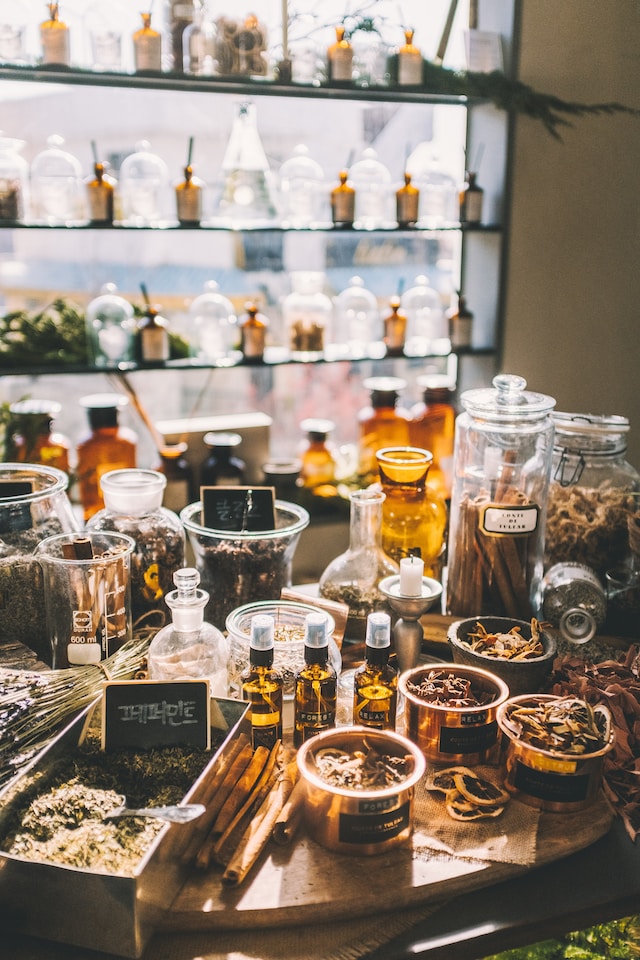
- Herbs for Nourishing the Immune System:
A strong immune system is crucial for maintaining overall health and well-being. Incorporating immune-boosting herbs into your daily routine can help support your body’s defense mechanisms.
Echinacea: This herb has been used for centuries to strengthen the immune system and ward off infections. Whether consumed as a tincture, tea, or in supplement form, echinacea can help fortify your body’s natural defenses.
Garlic: Known for its powerful antimicrobial properties, garlic is a potent herb for enhancing immune function. Incorporate fresh garlic into your meals or take garlic supplements to benefit from its immune-boosting effects.
- Herbs for Soothing Aches and Pains:
Physical discomfort can hinder our ability to enjoy life to the fullest. Thankfully, there are herbs that possess analgesic and anti-inflammatory properties, providing relief from aches and pains.
Turmeric: With its vibrant golden color, turmeric contains a compound called curcumin, which has potent anti-inflammatory effects. Incorporate turmeric into your diet through curries, smoothies, or turmeric-infused golden milk for its soothing benefits.
Arnica: This herb is well-known for its ability to reduce inflammation and alleviate muscle soreness. Apply arnica-based creams or ointments topically to soothe aches and pains associated with sprains, bruises, or arthritis.
Safety and Precautions in Herbal Medicine
While herbal medicine offers incredible healing potential, it is essential to approach its use with caution and awareness. Just as with any form of medicine, herbs can have potential side effects and interactions with medications. It is crucial to prioritize safety when incorporating herbal remedies into your wellness routine. In this section, we will explore the importance of safety precautions and guidelines to ensure the responsible use of herbal medicine.
Consultation with a Healthcare Professional
Before starting any herbal remedy, it is advisable to consult with a trained herbalist or healthcare provider. They can provide valuable guidance on herb selection, dosage, and potential interactions with other medications you may be taking. Your healthcare professional can also help identify any contraindications or precautions specific to your health conditions or individual circumstances.
Quality and Contamination
Ensure that the herbal products you purchase are of high quality, preferably from reputable sources. Look for standardized extracts or products that have undergone quality control testing. Be cautious of products with unknown origins or those that make exaggerated claims without supporting evidence. Additionally, be aware of the potential for herb contamination with pesticides, heavy metals, or other harmful substances. If possible, choose organic or sustainably sourced herbs.
Research and Education
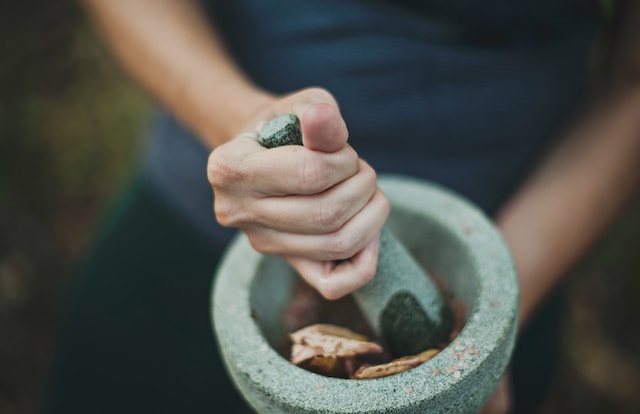
Taking the time to research and educate yourself about the herbs you are considering using is essential. Familiarize yourself with the potential side effects, interactions, and contraindications of each herb. Understand the proper dosage and method of administration for optimal safety and efficacy. Reliable sources such as reputable herbal books, scientific studies, or trusted online resources can provide valuable information.
Allergies and Sensitivities
Just like with any other substance, individuals may have allergies or sensitivities to certain herbs. Before using any new herb, it is wise to perform an allergy test. This can be done by applying a small amount of the herb or product to a small area of skin and monitoring for any adverse reactions. If you have a known allergy to plants in a specific botanical family, it is recommended to exercise caution with other plants in the same family.
Pregnancy and Lactation
Pregnant and breastfeeding individuals should exercise caution when using herbal remedies, as certain herbs can have potential effects on pregnancy and breastfeeding. It is crucial to consult a healthcare professional before incorporating herbs into your routine during these periods. Some herbs are contraindicated during pregnancy, while others may be considered safe in limited amounts. However, it is best to err on the side of caution and seek professional advice.
Children and Elderly Individuals
Special care should be taken when using herbs with children or elderly individuals. Children may require lower dosages or specific preparations suitable for their age and weight. Elderly individuals may have multiple medications, which can increase the risk of herb-drug interactions. Always consult a healthcare professional experienced in pediatric or geriatric care for appropriate guidance.
Potential Herb-Drug Interactions
Herbs may interact with prescription medications, over-the-counter drugs, or other supplements. These interactions can influence the effectiveness or safety of both the herb and the medication. It is essential to disclose all medications and supplements you are taking to your healthcare professional for an accurate assessment of potential interactions. This will help avoid any harmful effects or reduced effectiveness of medications.
Incorporating herbal medicine into your wellness routine can be an enriching and empowering experience. By following safety precautions and guidelines, you can harness the healing power of herbs while minimizing risks. Always prioritize consultation with a healthcare professional, educate yourself about the herbs you use, ensure quality and purity, be aware of allergies and sensitivities, exercise caution during pregnancy or lactation, consider specific needs of children and the elderly, and be mindful of potential herb-drug interactions. With responsible use, herbal medicine can enhance your well-being and contribute to a holistic approach to health.
